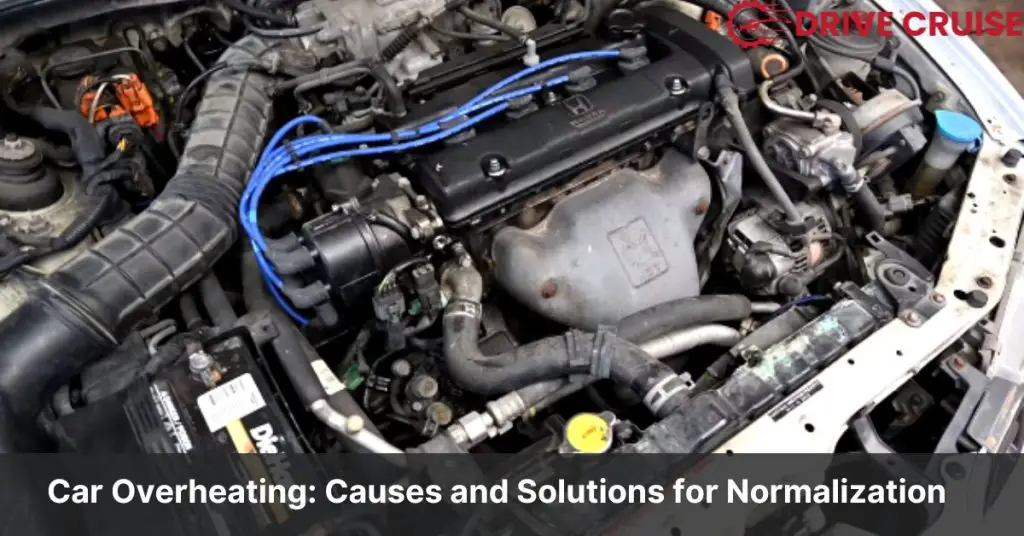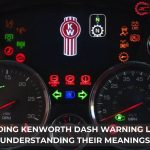Experiencing your car overheating only to seemingly cool down on its own can be a confusing and concerning situation. While a temporary drop in temperature might provide a brief sense of relief, it doesn’t signify the problem is solved. This guide empowers drivers and automotive technicians with valuable insights into the potential causes behind a car overheating and then returning to normal.
If you have noticed your car overheating and then going back to normal, it could be due to a number of reasons. Some of the common causes of this issue include a bad thermostat, coolant temperature sensor, water pump, radiator fan, or temperature gauge. Additionally, a clogged radiator or low coolant level could also be responsible for the problem.
It’s important to address the issue as soon as possible to avoid any potential damage to your car’s engine. By understanding the potential causes of this problem, you can take the necessary steps to diagnose and fix the issue, whether it’s a simple repair or requires the assistance of a professional mechanic.
The Importance of a Properly Functioning Cooling System
The cooling system in your car plays a crucial role in regulating the engine temperature. It circulates coolant throughout the engine block and radiator, which helps transfer excess heat from the engine to the atmosphere. A properly functioning cooling system is essential to prevent your car from overheating and causing damage to the engine.
When your car overheats and then cools down, it could be a sign of a malfunctioning cooling system. The engine temperature spikes and then returns to normal when the cooling system kicks in to regulate the temperature. If this happens frequently, it could be an indication of a more serious problem that needs to be addressed.
Here are some of the reasons why a properly functioning cooling system is important:
- Prevents Engine Damage: Overheating can cause severe damage to the engine, such as warped cylinder heads, cracked engine blocks, and blown head gaskets. These issues can be expensive to repair and may even require a complete engine replacement.
- Improves Engine Performance: A properly functioning cooling system helps maintain the engine at the optimal temperature, which improves its performance and prevents it from working too hard.
- Increases Fuel Efficiency: When the engine is working too hard, it consumes more fuel, which reduces your car’s fuel efficiency. A properly functioning cooling system helps maintain the engine at the optimal temperature, which improves fuel efficiency.
- Extends Engine Life: A properly functioning cooling system helps prevent damage to the engine, which extends its life and reduces the need for costly repairs.
Why Does My Car Overheat Then Cool Down?
If your car overheats and then cools down, you might be wondering what causes this issue. There can be several reasons for this, ranging from temporary issues to more serious problems. In this section, we’ll explore some of the common reasons for a temporary cool down after overheating, as well as the importance of addressing the underlying cause of overheating.
Temporary Issues Affecting Coolant Flow
Air Pockets in the Cooling System:
One of the common reasons for overheating is air pockets in the cooling system. These pockets can impede coolant circulation, leading to localized overheating. As the engine idles or cools down, the air pockets might move, allowing some coolant flow and a temporary temperature drop. If your car overheats and then cools down, this could be a possible reason.
Low Coolant Level:
Another reason for overheating could be low coolant levels. Insufficient coolant can restrict heat transfer, causing overheating. Stopping the engine allows the remaining coolant to circulate more freely, potentially leading to a temporary cool down. If your car randomly overheats, it’s worth checking the coolant levels.
Brief Respite Before More Serious Issues
It’s important to note that a cool down doesn’t indicate the problem is fixed. The underlying cause of overheating is still present and can lead to further issues if not addressed promptly. Therefore, it’s essential to identify the root cause of overheating and get it fixed as soon as possible to prevent any further damage to your car.
What to Do When Your Car Overheats
If you notice that your car is overheating and then going back to normal, it’s important to take immediate action to avoid further damage. Here are some steps you should take:
Safety First
The first thing you should do is pull over to a safe location as soon as possible and turn off the engine. Avoid immediate restarts, as this can cause further damage. It’s also important to stay safe and avoid opening the hood until the engine has cooled down slightly to avoid burns.
Preliminary Checks
Once you are safely off the road, you can start to assess the situation. Visually inspect for coolant leaks under the hood, but make sure to wait until the engine has cooled down slightly to avoid burns. Check the coolant reservoir level as well, which you can find in your owner’s manual.
Seek Professional Help
If your car has overheated, do not attempt to drive it any further. Call for roadside assistance or tow the car to a qualified mechanic for a proper diagnosis and repair. Attempting to drive the car further can cause further damage to the engine and other components.
If your car overheats and shuts off, it’s important to take the same steps listed above. However, if your car shuts off due to overheating, you may need to wait longer for the engine to cool down before attempting any preliminary checks. In this case, it’s best to call for roadside assistance or tow the car to a qualified mechanic for a proper diagnosis and repair.
Potential Causes of Overheating Identified by a Mechanic
If your car is intermittently overheating, a mechanic can diagnose the root cause of the issue. The following are some common culprits that a mechanic may identify:
Cooling System Faults
Faulty Thermostat:
A stuck-closed thermostat can prevent coolant from circulating properly, leading to overheating. A mechanic can test the thermostat to determine if it’s functioning correctly.
Clogged Radiator:
Blocked radiator fins or internal debris can hinder heat dissipation, causing the engine to overheat. A mechanic can flush the radiator or replace it if necessary.
Failing Water Pump:
The water pump is responsible for circulating coolant. A malfunctioning pump can lead to insufficient coolant flow and overheating. A mechanic can test the water pump to determine if it’s working correctly.
Coolant System Leaks:
Leaks can cause low coolant levels, compromising the system’s ability to regulate temperature. A mechanic can pressure test the cooling system to identify leaks and repair them.
Other Potential Causes
Low Engine Oil:
In rare cases, inadequate engine oil can contribute to overheating due to increased friction. A mechanic can check the oil level and top it off if necessary.
Blown Head Gasket:
A severe issue where the head gasket fails to seal the cylinder head and engine block properly. This can lead to coolant leaks and overheating, along with other symptoms. A mechanic can perform a compression test to diagnose a blown head gasket.
Preventing Car Overheating
Regular Maintenance:
To prevent your car from randomly overheating, it’s important to keep up with regular maintenance. This includes scheduled checks of the cooling system for leaks, testing coolant levels and health, and checking belts and hoses. By doing this, you can catch any potential issues before they turn into major problems.
Coolant Maintenance:
Consult your owner’s manual for recommended coolant service intervals and proper coolant type for your vehicle. It’s important to keep an eye on your coolant levels and ensure that they are topped off. Additionally, you should check your coolant for any signs of contamination or discoloration, as this can indicate a problem with the cooling system.
Warning Signs:
Don’t ignore a rising temperature gauge or the “check engine” light. These are warning signs that your car may be overheating or experiencing other issues. Prompt attention can prevent minor issues from turning into major problems. If you notice any of these warning signs, it’s important to take your car to a mechanic as soon as possible to identify and address the issue.
Conclusion
In conclusion, experiencing a car overheating and then seemingly cooling down can be a perplexing experience for any driver. However, it is important to understand the underlying causes of this issue to prevent further damage and ensure optimal engine performance.
As we have seen, there are several reasons why a car may overheat and then seemingly cool down, including a bad thermostat, coolant temperature sensor, water pump, radiator fan, temperature gauge, or clogged radiator. It is important to seek professional help from a qualified mechanic to diagnose and repair the underlying cause of the issue to prevent further damage and ensure optimal engine performance.
Related Posts:
- Can You Drive a Right Hand Drive Car in the US? Everything You Need to Know
- Car Overheating: Causes and Solutions for Normalization
- Chassis Control System Error: Causes and Solutions
- Ford Focus: Years to Avoid for a Smoother Ride
- How to fix chassis control system fault: A beginner’s guide
- How to Fix Tire Cupping: Tips and Tricks for a Smoother Ride
- Lexus RX 400h Problems: What You Need to Know
- Nissan Forward Emergency Braking Warning Light Reset: A Quick Guide
- Nissan Qashqai Malfunction Warning Light: What You Need to Know
- Toyota Corolla Gear: A Guide to Understanding Your Car’s Transmission
- Yokohama Geolandar AT G015 Review: A Reliable All-Terrain Tire











